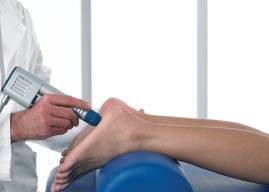Pregnancy and Your Feet
Pregnancy causes many different changes to a woman’s body, and most women will have various complaints throughout their pregnancy. One of the most overlooked complaints is that of foot pain. Due to natural weight gain during pregnancy, a woman’s centre of gravity is completely changed. This will lead to a new weight-bearing stance and added pressures to the low back, hips, knees and feet.
Two of the most common foot problems related by pregnant women are excessive rolling in of the feet (over-pronation) and excessive swelling (edema). These problems can lead to pain in the arches, heels or ball of the foot. Many women also can experience leg cramping and / or varicose veins due to their weight gain. Because of all of this, it is important that pregnant women learn more about foot health during pregnancy in order to try and make this 9-month period as comfortable as possible.
Causes: Over-pronation and edema are very common foot problems experienced during pregnancy. Over-pronation, which is often referred to as flat feet, occurs when a person’s arch flattens out with weight bearing or walking. This can create excessive stress and inflammation in the arch area of the feet and in the heels. It can also make walking very uncomfortable or painful and can cause an increase strain in the calves or low back in addition to the feet. The reason that pregnant women suffer from over-pronation is simply due to the added pressures on the feet due to weight gain.
Edema, which is also referred to simply as swelling of the feet, is a normal part of the latter part of pregnancy. Edema occurs due to an extra amount of blood which accumulates during pregnancy. As the uterus enlarges, it applies pressures on the blood vessels in the pelvis, thus causing circulation to slow down and blood to pool in the lower extremities. Total water fluid content in the body remains more or less the same, it is simply temporarily displaced. Often some extra water can be retained during pregnancy, which can also contribute to swelling. If there is swelling in the face or hands, then the family doctor should be consulted promptly.
Treatment and Prevention: Over-pronation can best be treated with proper comfortable fitting supportive walking shoes or sneakers. If symptoms persist then custom orthotics might be recommended. These custom orthotics will be made with appropriate arch support, as well as any additional required ‘posting’ to help correct the over-pronation and alleviate the aggravating symptoms. It is important to treat the over-pronation in order to alleviate the pain at hand and also to prevent other conditions, such as plantar fasciitis, metatarsalgia, or posterior tibial tendonitis from occurring.
Edema in the feet can best be minimized and controlled by doing the following:
- Elevate the feet as much as possible. Whenever you are sitting use a stool to rest your feet on.
- Wear shoe gear that is very comfortable.
- If you are buying new shoes, have your feet measured each time. Your foot size will change throughout your pregnancy.
- Wear socks that do not constrict circulation.
- If you do a lot of driving, take several rest stops to walk around and stretch and exercise your legs and promote circulation.
- Exercise regularly. Walking is usually one of the best.
- Drink plenty of water. Keeping well hydrated will reduce the need for the body to retain any extra fluids.
- Eat a well-balanced diet and avoid foods that are high in salt content. Salt will cause water retention.
Swelling is normally similar in both feet. If the swelling is not symmetrical then you should consult your family doctor promptly, as it may be a sign of a vascular problem.



